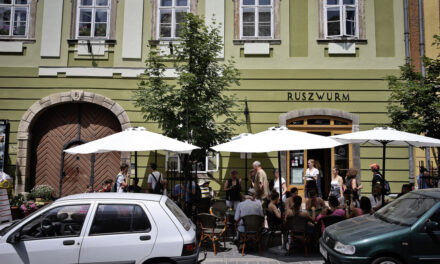On Saturday, Chancellor Angela Merkel warned against racist and anti-Semitic manifestations at demonstrations in support of the Palestinian cause in Germany, where several demonstrations are planned for the weekend.

Angela Merkel/Source: szbatmagyarszo.com
"Those who take hatred against Jews to the streets, who incite racial hatred, fall outside our constitution," Merkel warned in her weekly radio message and podcast. "Such acts must be consistently punished," he emphasized. There were several demonstrations in Germany due to the clashes between Israel and the Palestinian Hamas that escalated in the last two weeks . A fragile ceasefire agreement between the two sides entered into force on Friday.
In Germany, a week ago, around 60 people were detained and 100 policemen were injured during the violent movements that took place at the Berlin demonstration organized for the Palestinian cause. At these events, protesters chanted anti-Semitic slogans, burned Israeli flags and threw stones at the entrance to a synagogue.
The government strongly condemned what happened. During the long Pentecost weekend, more demonstrations are planned again in the capital and other cities. In this tense situation, a Jewish Berliner reported that he was attacked by three men in Berlin on Friday night. Their identities are still unknown. The 41-year-old man, who was wearing a kippah, said that he was tied up and then punched in the face . His attackers fled. He filed a report at the nearest police station. He was then taken to hospital, which he was able to leave after treatment.
Germany is concerned about the resurgence of anti-Semitism, fueled mainly by the extreme right, especially since the failed attack on a synagogue in Halle in October 2019 by an extremist with revisionist theses.
The Jewish community, which has experienced a renaissance since German reunification and the arrival of hundreds of thousands of Jews from the former Soviet Union, pointed to anti-Semitism in some Muslim circles, especially among those who arrived as refugees in 2015 and 2016 from Arab countries hostile to Israel.
Source: mandiner.hu
Featured image: szbatmagyarszo.com












